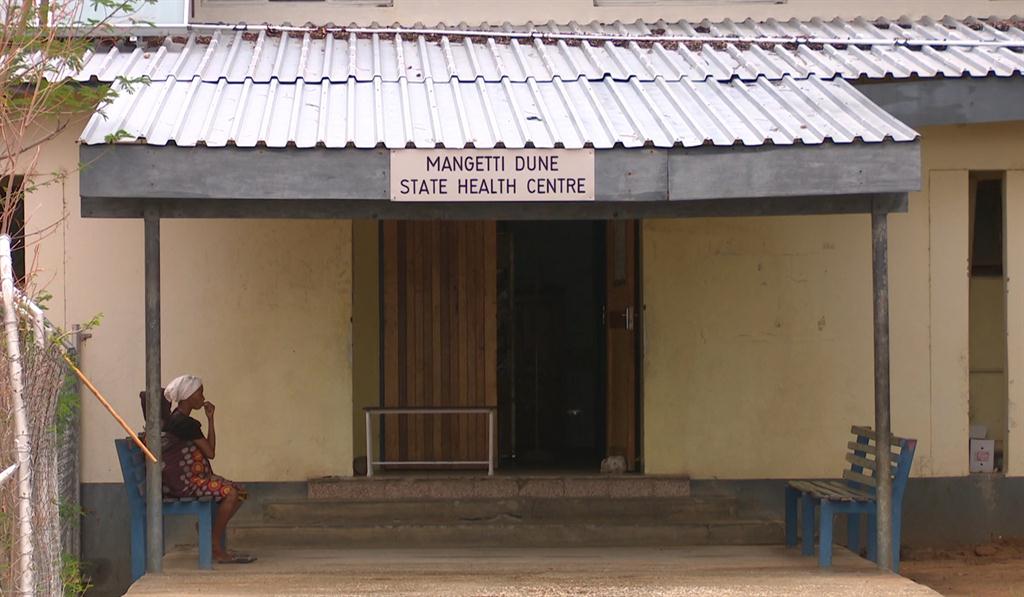Grim Amnesty report attracts govt attention
JANA-MARI SMITH
WINDHOEK
Namibia’s government says it is eager to study and apply the recommendations contained in a grim Amnesty International report detailing widespread human rights violations against San communities, and a resulting surge in tuberculosis (TB).
“The report comes at a time as interventions to combat TB in Namibia generally, and among the San in particular, are being intensified,” health ministry executive director Ben Nangombe said during the launch of the report yesterday.
“[The report] will serve to contribute to the efforts being made in this area,” he assured panelists.
Nangombe stressed that ultimately “we are all aiming for the same goal”.
He added that government will engage with Amnesty and share current interventions and programmes to address TB and the multi-drug resistant version of the infection (MDR-TB) among marginalised communities.
“As we engage with the report, as it goes to inform our interventions, we will definitely reach the targets and objectives we have set for ourselves.”
Political will
Human rights advocate Herbert Jauch said “the report can provide government with an important tool to systematically redress the inequalities that exist – provided that there is the political will to do so.”
He cautioned that “this will also entail making the necessary resources available instead of merely pushing the austerity agenda”.
The Amnesty report paints a grim picture of the high rate of TB and MDR-TB - 40% higher than the already steep national average - among San people in Namibia, and the multitude of human rights issues linked to those statistics.
“The most striking finding is that such terrible conditions exist 31 years after independence when some of these long-standing inequalities should have been addressed, at least to a significant extent,” Jauch said.
‘We are humans’
Frans Doeseb, a San person from the Omaheke Region, said a crucial step forward is to accept that San people are not a historical and tourism curiosity or showpiece.
“We are human beings. We have dignity. Our politicians talk about equality, but when we adopt equal treatment, we are still left behind.”
“At the heart of the report is human rights. TB is a human rights issue,” Amnesty regional researcher Mandipa Machacha said.
She added that the disease is “always a very good indication of where there is a lack of human rights. People who experience TB often experience human rights violations on a daily basis”.
“People who are the most marginalised and discriminated against also have the highest chances of contracting it. It really is a disease of poverty and inequality.”
WINDHOEK
Namibia’s government says it is eager to study and apply the recommendations contained in a grim Amnesty International report detailing widespread human rights violations against San communities, and a resulting surge in tuberculosis (TB).
“The report comes at a time as interventions to combat TB in Namibia generally, and among the San in particular, are being intensified,” health ministry executive director Ben Nangombe said during the launch of the report yesterday.
“[The report] will serve to contribute to the efforts being made in this area,” he assured panelists.
Nangombe stressed that ultimately “we are all aiming for the same goal”.
He added that government will engage with Amnesty and share current interventions and programmes to address TB and the multi-drug resistant version of the infection (MDR-TB) among marginalised communities.
“As we engage with the report, as it goes to inform our interventions, we will definitely reach the targets and objectives we have set for ourselves.”
Political will
Human rights advocate Herbert Jauch said “the report can provide government with an important tool to systematically redress the inequalities that exist – provided that there is the political will to do so.”
He cautioned that “this will also entail making the necessary resources available instead of merely pushing the austerity agenda”.
The Amnesty report paints a grim picture of the high rate of TB and MDR-TB - 40% higher than the already steep national average - among San people in Namibia, and the multitude of human rights issues linked to those statistics.
“The most striking finding is that such terrible conditions exist 31 years after independence when some of these long-standing inequalities should have been addressed, at least to a significant extent,” Jauch said.
‘We are humans’
Frans Doeseb, a San person from the Omaheke Region, said a crucial step forward is to accept that San people are not a historical and tourism curiosity or showpiece.
“We are human beings. We have dignity. Our politicians talk about equality, but when we adopt equal treatment, we are still left behind.”
“At the heart of the report is human rights. TB is a human rights issue,” Amnesty regional researcher Mandipa Machacha said.
She added that the disease is “always a very good indication of where there is a lack of human rights. People who experience TB often experience human rights violations on a daily basis”.
“People who are the most marginalised and discriminated against also have the highest chances of contracting it. It really is a disease of poverty and inequality.”




Comments
Namibian Sun
No comments have been left on this article